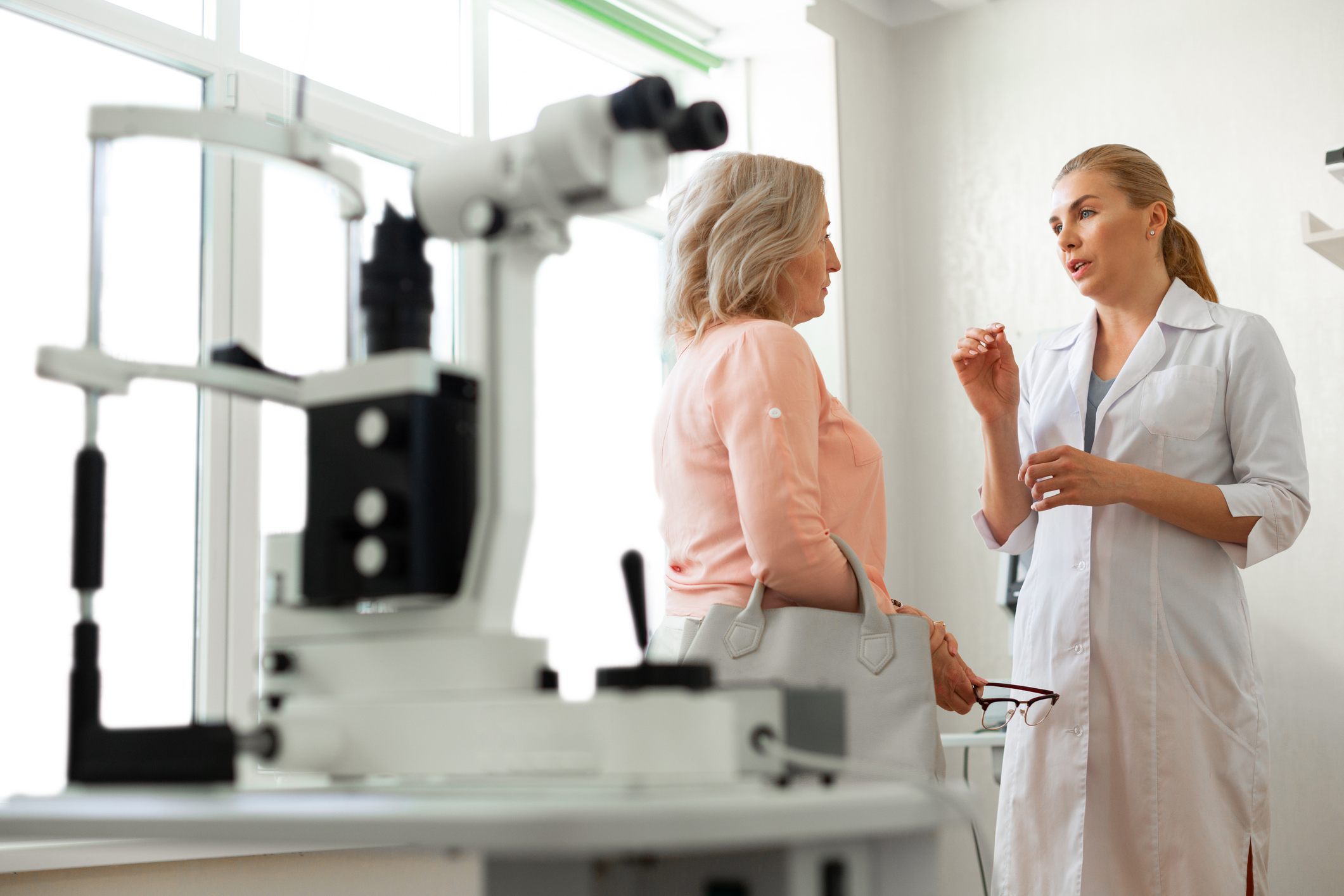Get Easy Health Digest™ in your inbox and don’t miss a thing when you subscribe today. Plus, get the free bonus report, Mother Nature’s Tips, Tricks and Remedies for Cholesterol, Blood Pressure & Blood Sugar as my way of saying welcome to the community!
When good cholesterol is bad news for your eyes

We’ve all heard the standard medical advice when it comes to cholesterol.
More of us than not have likely gone to the doctor’s office for a checkup, only to be told we need to lower our ‘bad’ cholesterol or raise our ‘good’ cholesterol.
But what if there’s more to the plot of this cholesterol story? What if the so-called “good” guy — HDL cholesterol — isn’t always so good?
That’s the finding of a study published in the British Journal of Ophthalmology that has shown a dangerous link between high-density lipoprotein, or HDL cholesterol, and the second leading cause of blindness in the United States.
Cholesterol’s glaucoma risk
The research delved into an average of 14 years of medical data of over 400,000 people between the ages of 40 and 69 who participated in the U.K. Biobank Study.
Specifically, the scientists set out to compare results from cholesterol testing to the likelihood of developing glaucoma. It’s an eye condition that results in damage to the optic nerve, vision loss and even blindness that is currently irreversible and incurable.
And the researchers found something quite surprising…
People with higher levels of HDL or ‘good’ cholesterol in their blood (which is linked to a lower heart disease risk) were significantly more likely to suffer from glaucoma. In fact, the numbers showed that those with the highest HDL levels faced a 10% elevated glaucoma risk compared to those with the lowest levels.
Conversely, the results showed that participants with higher LDL or ‘bad’ cholesterol, total cholesterol and triglycerides (all considered risk factors for heart disease) were less likely to develop glaucoma.
According to the researchers, people with the highest LDL levels experienced an 8% reduction in their glaucoma risk. And those with the highest triglycerides were 14% less likely to end up with glaucoma.
These findings suggest that the traditional view of cholesterol, where high levels of HDL are considered beneficial, may need to be re-evaluated in the context of eye health.
Balancing your cholesterol levels
So, if you have high levels of that ‘good’ cholesterol, should you ask your doctor for cholesterol-lowering statins in order to reduce your glaucoma risk?
That’s a complicated matter. While statins may be effective in lowering cholesterol and reducing the risk of heart disease, previous research has linked these medications to glaucoma development, too. It’s important to discuss the potential risks and benefits with your doctor before considering statin therapy.
However, there are natural steps to support balanced cholesterol levels that could help bring down excess HDL levels. They include:
- Reducing alcohol intake
- Eating a balanced diet
- Getting regular exercise
- Maintaining a healthy weight
Also, manage other health conditions that can cause your HDL to skyrocket, like thyroid issues and inflammatory diseases.
Some medications, including bile acid sequestrants (which decrease fat absorption from foods), cholesterol absorption inhibitors, niacin and fibrates (such as fenofibrate), can raise your HDL levels. So, you might need to talk to your doctor about other options for treatment if you take these.
Don’t forget to have your cholesterol tested regularly to keep track of where you are. Normal HDL is 40 to 80 mg/dL for males and 50 to 80 mg/dL for females. Levels that fall at 80+ mg/dL are considered to be high for all.
Editor’s note: There are perfectly safe and natural ways to decrease your risk of blood clots including the 25-cent vitamin, the nutrient that acts as a natural blood thinner and the powerful herb that helps clear plaque. To discover these and other secrets of long-lived hearts, click here for Hushed Up Natural Heart Cures and Common Misconceptions of Popular Heart Treatments!
Sources:
Can too much ‘good’ cholesterol increase glaucoma risk? — MedicalNewsToday
Can my HDL be too high? — MedicalNewsToday
HDL cholesterol: How to boost your ‘good’ cholesterol — Mayo Clinic
Can HDL Cholesterol Levels Be Too High? — Healthline
HDL Cholesterol — Cleveland Clinic
When HDL is high (and too high) — Whole Heart Cardiology














